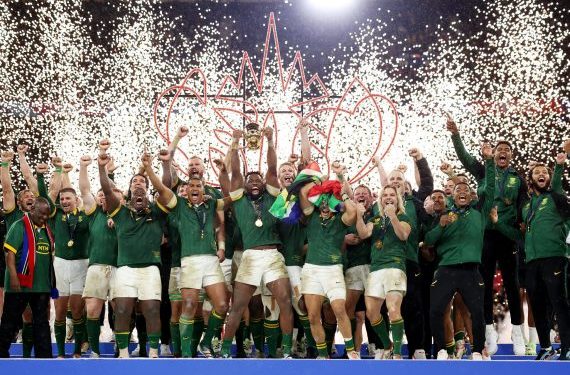In a gripping final held in Paris, South Africa emerged triumphant, securing their fourth Rugby World Cup title. The match was riddled with suspense as New Zealand played with 14 men for a significant part of the game.
The Springboks seized control early on, with Handre Pollard’s precise goal kicks bringing them a 9-3 lead. The game took a turn when New Zealand’s captain, Sam Cane, was red-carded in the 27th minute for a high tackle on Jesse Kriel.
However, New Zealand displayed resilience. Richie Mo’unga’s penalty before halftime and a subsequent try by Beauden Barrett shrunk South Africa’s lead to 12-11. The final quarter of the game was tense, with both teams striving for the winning score. Ultimately, the Springboks managed to hang on for their third consecutive one-point win in the tournament’s knockout stages.
A significant highlight was Siya Kolisi, the captain of the South African team, lifting the World Cup. This win further cements the Springboks’ dominance in the World Cup history, having won half of the tournaments they’ve participated in.
In the era of apartheid, the Springboks faced worldwide sporting exile and were loathed by many black South Africans. However, under Kolisi, the team’s first black Test captain, they have garnered support from all sections of the Rainbow Nation.
New Zealand’s head coach, Ian Foster, concluded his tenure just shy of the top accolade. The Springboks and All Blacks showcased a captivating clash filled with physicality and moments of brilliance.
Both teams, however, showcased stellar performances, leaving fans and experts alike in awe.



